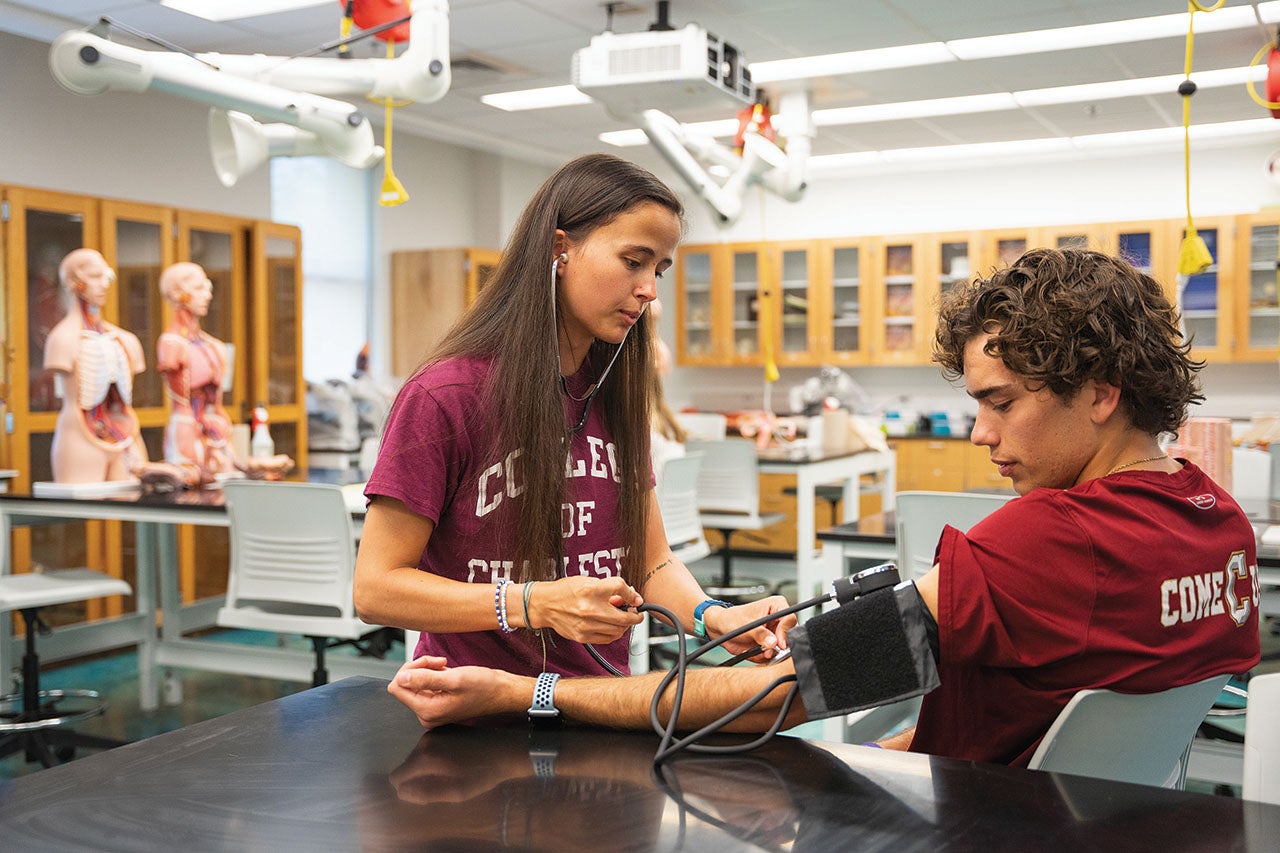It is a simple case of supply and demand. And one thing we learned in the pandemic was that we have a huge demand for healthcare professions across the nation – and that the supply of qualified workers is lacking. That’s why a recent report from the U.S. Bureau of Labor Statistics shows that health care employment is expected to grow by 16% between 2020 and 2030 – faster than the average of all other occupations. That translates into a growth of 2.6 million healthcare jobs nationwide, with 30,000 jobs needing to be filled in South Carolina alone.
The College of Charleston decided it was time to address that demand. Earlier this year, the Board of Trustees voted to establish the School of Health Sciences. Slated to open in the fall with Wes Dudgeon, the former chair of the Department of Health and Human Performance as interim dean, the new school will offer health science programs designed to prepare students for careers in the healthcare industry.
“With the establishment of the School of Health Sciences, the College of Charleston will prepare our students to be healthcare leaders throughout our communities,” says Suzanne Austin, executive vice president for academic affairs and provost. “Working with our community and healthcare partners, the College will offer programs that take advantage of our current expertise in public health, exercise science and lifetime physical activity to attract the next generation of scholars.”
Located in the Willard A. Silcox Physical Education and Health Center on George Street, the school will give CofC more opportunities to collaborate with the Medical University of South Carolina (MUSC). “The College already has a strong relationship with MUSC, including research collaborations involving our students and faculty,” says Austin. “We expect the School of Health Sciences to provide a platform for even more partnerships in the future.”
Next to CofC students, the biggest winners are the people of South Carolina.
“It’s a great opportunity for students,” says Mary Lightsey ’22, who earned a degree in public health. “And it’s going to have an amazing impact on the healthcare services in Charleston.”





